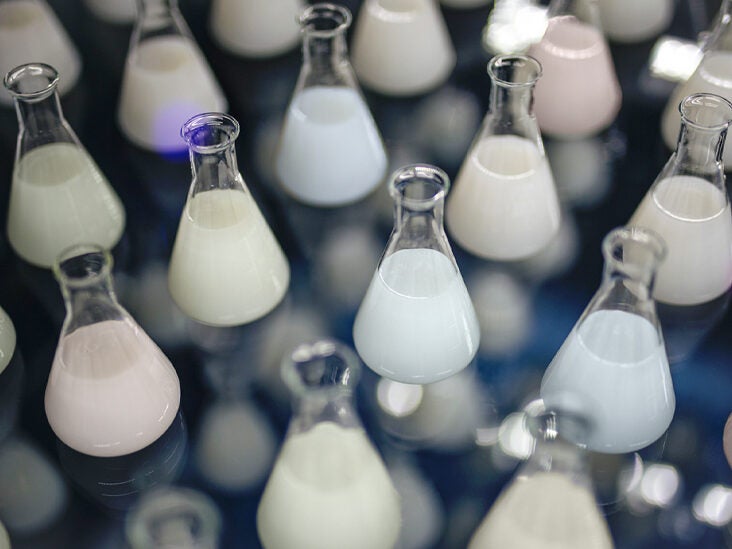Understanding Sperm and Fertility
When it comes to the topic of fertility and conception, there are numerous myths that abound. One such misconception is whether a watery sperm can lead to a successful pregnancy. To unravel the truth, it's essential to understand the basics of fertility.

Male fertility hinges on the health and quality of their sperm. Sperm cells are typically contained in semen, a fluid released during ejaculation. However, the consistency and appearance of semen can vary considerably between individuals. Some men may produce watery sperm, while others have thicker or more viscous semen.
The Role of Sperm in Conception
Sperm cells are designed to travel through the reproductive tract, ultimately reaching the waiting egg in the fallopian tubes. To achieve successful fertilization, sperm need to navigate the female reproductive system, encountering various hurdles along the way.
While there are millions of sperm in each ejaculation, only a small fraction will survive the journey. The chances of achieving pregnancy depend on multiple factors, including sperm health, quantity, motility, and the presence of an egg.
Does the Consistency of Semen Affect Fertility?
Contrary to popular belief, the consistency or appearance of semen does not determine a person's fertility. Even watery sperm has the potential to fertilize an egg, albeit with slightly reduced chances compared to healthier sperm. Several other factors can impact fertility, such as genetic disorders, hormonal imbalances, or reproductive infections.
It is important to understand that fertility depends on both partners involved. Female fertility also plays a crucial role in conceiving. A healthy reproductive system, regular ovulation, and a receptive environment for sperm greatly increase the likelihood of successful fertilization, regardless of the consistency of semen.
Seeking Professional Advice
If you and your partner have been trying to conceive without success, it is advisable to consult a healthcare professional specializing in fertility. They can conduct tests, evaluate both partners' reproductive health, and provide appropriate guidance based on individual circumstances.
Remember that everyone's fertility journey is unique, and there is no one-size-fits-all answer to the question "Can a watery sperm get a woman pregnant?" Many factors come into play when it comes to conception, highlighting the importance of seeking expert advice.
It's crucial not to blame oneself or one's partner if difficulties arise. By staying informed and discussing concerns with a healthcare professional, you can navigate the intricacies of fertility and take appropriate steps in achieving a healthy pregnancy.
In conclusion, the consistency of semen does not determine a person's fertility. Watery sperm, like any other sperm, has the potential to successfully fertilize an egg. Understanding the complex interplay between fertility factors and seeking professional guidance are key to increasing the chances of conception.
Related FAQs about can a watery sperm get a woman pregnant
Is watery sperm less likely to get a woman pregnant?
Contrary to popular belief, the consistency or appearance of semen does not determine a person's fertility. Even watery sperm has the potential to fertilize an egg, albeit with slightly reduced chances compared to healthier sperm.
What factors affect a person's fertility?
Several factors can impact fertility, such as genetic disorders, hormonal imbalances, reproductive infections, and overall reproductive health of both partners.
Can a woman get pregnant solely based on watery sperm?
Successful pregnancy depends on multiple factors. While watery sperm can potentially fertilize an egg, the chances of conceiving are higher when both partners have overall good reproductive health and when healthier sperm are present.
Should couples be concerned if semen consistency varies?
No, semen consistency can vary naturally between individuals. It is not a cause for concern unless accompanied by other fertility-related symptoms or issues.
When should couples seek professional advice regarding fertility?
If a couple has been trying to conceive for a significant amount of time without success, it is advisable to consult a healthcare professional specializing in fertility. They can conduct tests, evaluate both partners' reproductive health, and provide appropriate guidance based on individual circumstances.
Glossary about can a watery sperm get a woman pregnant
1. Sperm: Sperm are the male reproductive cells, or gametes, which are produced in the testicles and play a central role in fertilization.
2. Fertility: Fertility refers to a person's ability to conceive a child, influenced by various factors such as sperm health, egg quality, and reproductive system functionality.
3. Conception: Conception is the process of fertilization, where a sperm cell successfully penetrates an egg, leading to the formation of a zygote and eventually a pregnancy.
4. Ejaculation: Ejaculation is the expulsion of semen, containing sperm, from the penis during sexual climax or orgasm.
5. Reproductive Tract: The reproductive tract consists of the organs and structures involved in the production, transport, and fertilization of gametes. In females, it includes the fallopian tubes, uterus, and vagina. In males, it encompasses the seminal vesicles, prostate gland, and vas deferens.
6. Fallopian Tubes: The fallopian tubes are a pair of narrow tubes connecting the ovaries to the uterus. They serve as a pathway for the egg to travel from the ovary to the uterus and are the site of fertilization.
7. Ovulation: Ovulation is the release of a mature egg from the ovary into the fallopian tube, occurring approximately halfway through a woman's menstrual cycle.
8. Healthcare Professional: A healthcare professional is an individual trained in the field of medicine who provides medical care, advice, and treatment to patients. They may include doctors, nurses, gynecologists, and fertility specialists.
9. Genetic Disorders: Genetic disorders are disorders caused by abnormal or mutated genes. They can impact various aspects of health, including fertility.
10. Hormonal Imbalances: Hormonal imbalances occur when there is an abnormality in the production, regulation, or functioning of hormones. Such imbalances can affect reproductive health and fertility.
